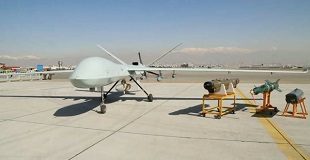
Los Angeles, US | XINHUA | A new study by American researchers, released on Thursday, suggests the deadly coronavirus may have already reached Los Angeles by late December, actively circulating in the area months before the first definitive cases in the United States were identified.
Researchers at the University of California, Los Angeles (UCLA), evaluated more than 10 million patient and health records for UCLA Health outpatient, emergency department and hospital facilities, spanning Dec. 1, 2019, to Feb. 29, 2020, and compared those records with data from the same period over the previous five years.
They found a troubling trend. The outpatient clinic visits by UCLA patients seeking care for coughs increased by over 50 percent and exceeded the average number of visits for the same complaint over the prior five years by more than 1,000.
They also discovered a “significant” excess in the number of patients seen in emergency departments for reports of coughs and of patients hospitalized with acute respiratory failure during this time period.
These excesses remained even after accounting for changes in patient populations and seasonal variation, according to the study, published in the peer-reviewed Journal of Medical Internet Research.
“For many diseases, data from the outpatient setting can provide an early warning to emergency departments and hospital intensive care units of what is to come,” said Joann Elmore, the study’s lead author and a professor of medicine at the David Geffen School of Medicine at UCLA.
“The majority of COVID-19 studies evaluate hospitalization data, but we also looked at the larger outpatient clinic setting, where most patients turn first for medical care when illness and symptoms arise,” Elmore said.
Researchers noted the unusually high number of visitors, patients and hospitalizations suggests community spread of SARS-CoV-2 prior to established clinical awareness and testing capabilities.
It may indicate that the coronavirus had silently arrived and begun establishing a foothold undetected on the West Coast around Christmas 2019. If true, that would shake up the current narrative of the virus’ origins in the country.
The U.S. Centers for Disease Control and Prevention (CDC) reported the first U.S. COVID-19 case on Jan. 21, who was a man traveling from Wuhan, China to Washington state. And it was not until Feb. 26 that the CDC confirmed community spread of the coronavirus in the United States.
UCLA researchers did not conclude for certain that coronavirus was behind the trends laid out in their study, saying other factors could be responsible for some of this unexpected increase, such as the use of e-cigarettes, or flu.
“We may never truly know if these excess patients represented early and undetected COVID-19 cases in our area,” Elmore said. “But the lessons learned from this pandemic, paired with health care analytics that enable real-time surveillance of disease and symptoms, can potentially help us identify and track emerging outbreaks and future epidemics.”
******
XINHUA
 The Independent Uganda: You get the Truth we Pay the Price
The Independent Uganda: You get the Truth we Pay the Price



